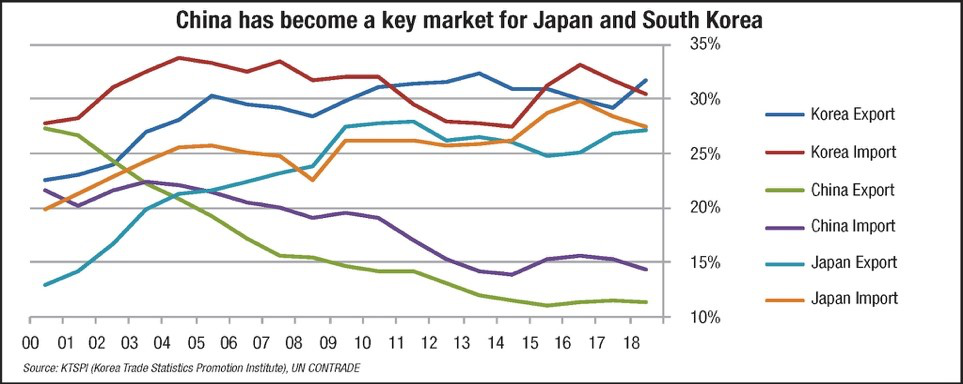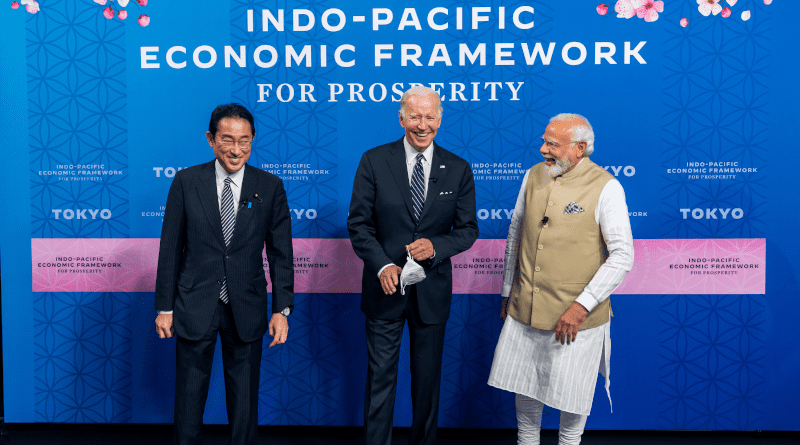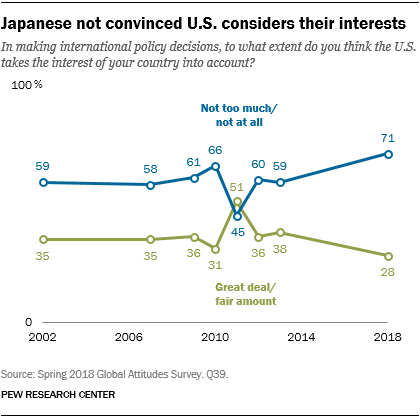Biden’s Maiden Presidential Trip To Asia: Reassuring Important Indo-Pacific Allies – Analysis
By Observer Research Foundation
By Vivek Mishra
On his first trip to Asia as President, Joe Biden made a five-days tour to two important Asian allies, South Korea and Japan. The importance of the visit lies in the US’ renewed focus on Asia which seemed somewhat fraying in the backdrop of the ongoing Russia-Ukraine war, drawing much of Washington’s resource and strategic focus to the Eurasian heartland. The sudden turn of events beset by the Russia–Ukraine war and the strategic necessities engendered by it has compelled the Biden administration to asymmetrically focus on a heated Eurasian front, even as the Indo-Pacific region has demanded US’ continued attention.
Be it China’s assertive actions, the apprehension of a looming China threat over Taiwan, or North Korea’s unabated efforts to build its missile programme as well as its nuclear arsenal, there has hardly been a dearth of issues drawing the US’ attention to the Indo-Pacific even amidst an active war in Europe. As such, Biden’s trip, coming rather late in his term, sought to achieve two important objectives: Mark his administration’s commitment to the important alliances in the Pacific—a departure from his predecessor’s style and intent—and to reassure two important allies in the Indo-Pacific amidst concerns that the US’ focus and resources could be drawn away from this region.
While a united front against Russia along with its European allies has helped the US consolidate its transatlantic alliance, it may have played a hand in withering assurances from the Biden administration that America’s allies in the Pacific theatre were expecting out of a different dispensation in Washington than the brinkmanship of the erstwhile Donald Trump presidency. Against this backdrop, Biden’s trip to two important allies in Asia–Japan and South Korea—marks the refocusing of the US in the Indo-Pacific. In line with his administration’s Indo-Pacific strategy which was brought out earlier this year, Biden has sought to assure its Indo-Pacific allies that his promise of America’s continued focus in every part of this region is not just empty words and that a renewed focus on the threats posed by Russia in Europe will not take away from the Indo-Pacific strategy.
Broadly, Biden’s Asia trip was undergirded by three strong focuses: Improving economic security at home and abroad through stronger partnerships with its allies in the Indo-Pacific; stability of the Korean Peninsula in the face of continued North Korean threats; emphasising US’ extended deterrence in the Pacific theatre and countering China’s growing dominance in the Indo-Pacific.
The US-ROK relationship forms an important strategic arc in the Indo-Pacific. Symbolically, President Biden’s visit marked the earliest visit ever by a US President during any South Korean President’s tenure. In many ways, Biden’s visit looked to carve a sharper role for the ROK in US’ Indo-Pacific strategy. In South Korea, Biden looked to reassure a new government in Seoul under President Yoon Suk-yeol of the conservative People Power Party (PPP), of Washington’s continued support amidst a wearing out of trust in Seoul that the US under Biden was doing enough to bring North Korea to the negotiating table. In the US too, there was some settling apprehensionthat the South Korean government under President Yoon may be timider in its approach to North Korea and China. Besides, in an early scramble, China has already reached out to the new government of South Korea by sending one of its top officials into the recent swearing-in ceremony of President Yoon. Biden’s visit to Seoul sits well with President Yoon’s claim that the US–South Korea ties had weakened under his predecessor as the latter had drawn close to China. As Yoon had taken a hard-line position against China in his presidential campaign, Biden’s visit may have served as a necessary early scramble by the US to build on Yoon’s domestic political stand vis-à-vis China.
Biden’s trip to South Korea carried high economic stakes. By linking the intention to carve a distinct place for the ROK in the Indo-Pacific with the Indo-Pacific Economic Framework, the Biden administration has made it clear that there is a broad basing of the US–-ROK alliance underway that not just relies on the security compulsions but on “creating a strategic economic and technology partnership that really will reflect the importance of innovation and technology.” Discussions on supporting innovations, partnership on critical and emerging technologies, strengthening cooperation on defence industry issues, economic and energy security, global health, and climate change formed an important part of the bilateral discussions between the two sides. Specifically, the US and South Korea have targeted cooperation in the semiconductor industry as well as items like EV batteries and microchips. During this visit, President Biden and the Executive Chairman of Hyundai Motor Group discussed Hyundai’s decision to invest in a new electric vehicle and battery manufacturing facility in Savannah, Georgia. On May 19, the first day of his visit to South Korea, President Biden along with President Yoon also visited the Samsung Pyeongtaek facility. The agreements are slated to secure a US$11-billion investment towards manufacturing as well as 8,000 jobs in the US.
North Korea’s continued build-up of its nuclear arsenal remains a strong concern for the US, and Biden’s visit was meant to reflect his administration’s continued commitment towards the denuclearisation of the Korean Peninsula.
Japan
While in Japan, Biden had two important issues at hand. An image makeover for the US due to a growing conviction among the Japanese that the US may not be considering their interests and reassuring Tokyo as an important ally in the Indo-Pacific against China. The graph below shows that Japanese assurances fell sharply under Trump.
The leg of Biden’s visit focusing on Japan placed equal emphasis on bilateral as well as multilateral issues. Bilaterally, the US assured Japan of security guarantees, maintaining Japan’s position as the lynchpin of Indo-Pacific security. Multilaterally, Biden chose Tokyo to launch the Indo-Pacific Economic Framework as well as counted on Japan’s cooperation through the G7 to present a united front against the Russian war on Ukraine. The hosting of the Quad summit provided space for the additional front against China in the Indo-Pacific, even as US’ strategic focus remains tethered to the Eurasian front.
Biden’s visit showcased that Japan remains a steadfast ally in the Pacific for advancing a free and open vision in the region, with common assertions on the importance of the Quad, ASEAN centrality, AUKUS, and other multilateral partnerships and forums. The discussions between Japan and the US covered a wide range of issues spanning China’s activities in the maritime domain, the United Nations Convention on the Law of the Sea (UNCLOS), and boosting extended deterrence by reaffirming the Treaty of Mutual Cooperation and Security between the two countries and mechanisms within it such as the Security Consultative Committee (SCC) and the Extended Deterrence Dialogue.
As America looks to create more jobs back home, the economic resurgence is seen as consistent with US’ objectives in the Indo-Pacific—amongst them, to wean Japan and South Korea away from a growing trade dependence on China. In the recent past, both Japan and South Korea have seen growing trade dependence on China.

The launch of the Indo-Pacific Economic Framework was perhaps the most important development of Biden’s maiden Asia visit as President in this regard. The US’ Indo-Pacific Economic Framework brings both Japan and the ROK formally into an expanded geoeconomic vision which, in the short term, seeks to emphasise that the US’ focus on the Eurasian front is not at the cost of its focus on the Indo-Pacific region and, in the long term, create economic and strategic alternatives to China’s Belt and Road Initiative (BRI).
Biden’s Asia trip to two of the US’ most important allies in the Pacific remains united by their opposition to Russia’s military operation in Ukraine. This may have been a step to distinctively pre-empt the rather nuanced position on the ongoing Russia–Ukraine war due to India’s subtle position on the issue. However, on other issues, the Quad remains resolutely unanimous.


